Students raced self-driving cars in a Duke Kunshan University competition testing their ability to apply machine learning technology to the real world.
Contestants of the first Amazon DeepRacer Competition to be staged on campus used reinforcement learning (RL) to drive the autonomous 1:18-scale vehicles around an indoor track on campus.
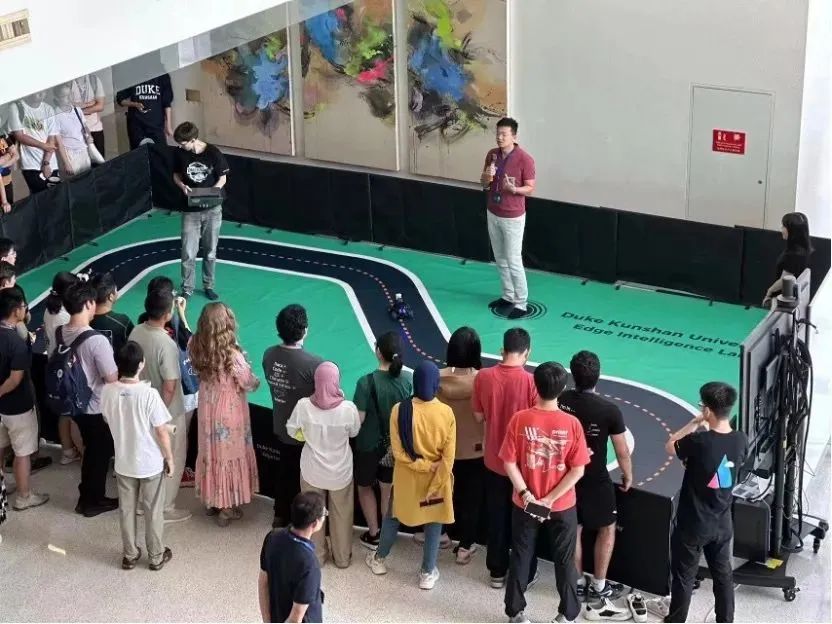
Of the 14 finalists taking part in the 1.5-hour session of individual time trials, Long Qian, a sophomore majoring in data science, won the senior category with a fastest lap time of 12 seconds exactly.
Shu Pu, also a data science sophomore, came second with a time of 12.7 seconds, while 12.9 seconds was enough for Yuxiao Zhu to triumph in the freshmen category.
The three students will continue optimizing their RL models in preparation for the National DeepRacer Competition.
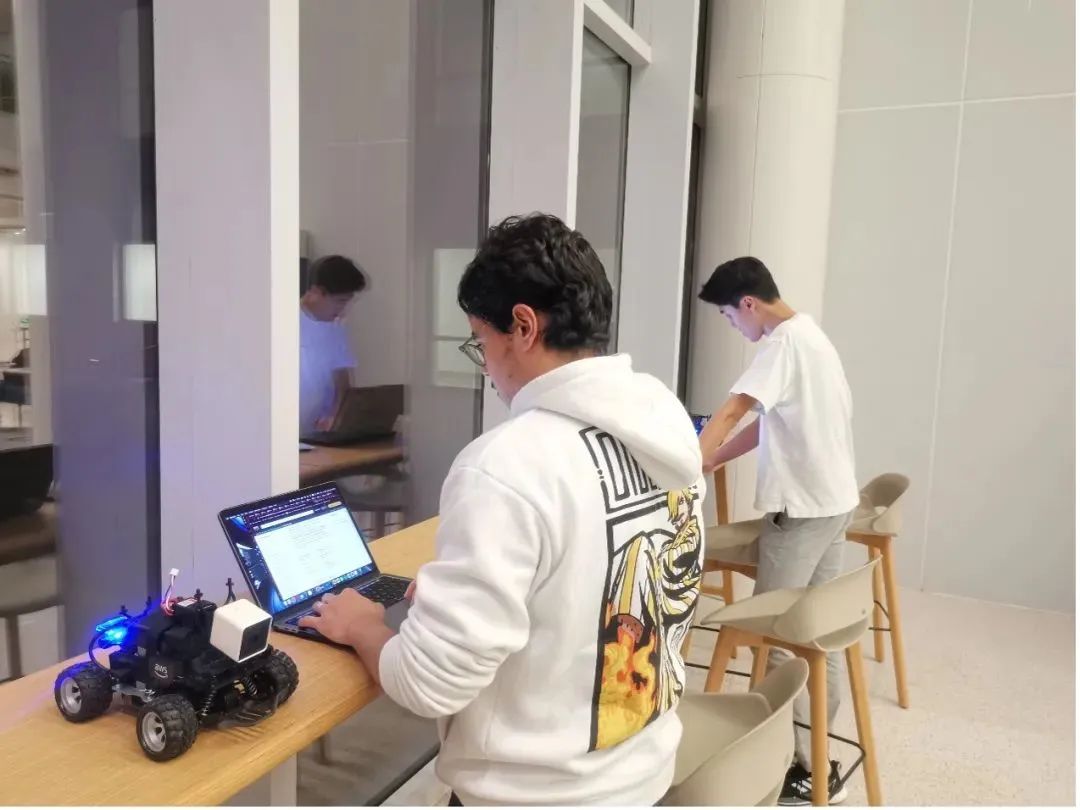
The competition was organized by the DKU Edge Intelligence Lab, which is overseen by Dr. Bing Luo, an assistant professor of data and computational science.
“The event allowed students to go beyond learning theoretical knowledge and get hands-on experience of how to apply their knowledge about machine learning and reinforcement learning to the real world,” Luo said.
“There is a huge gap between how a model performs in a simulator and in the car itself. It was a great opportunity for students to narrow the gap between what they learn in their courses and what is done in industry.”
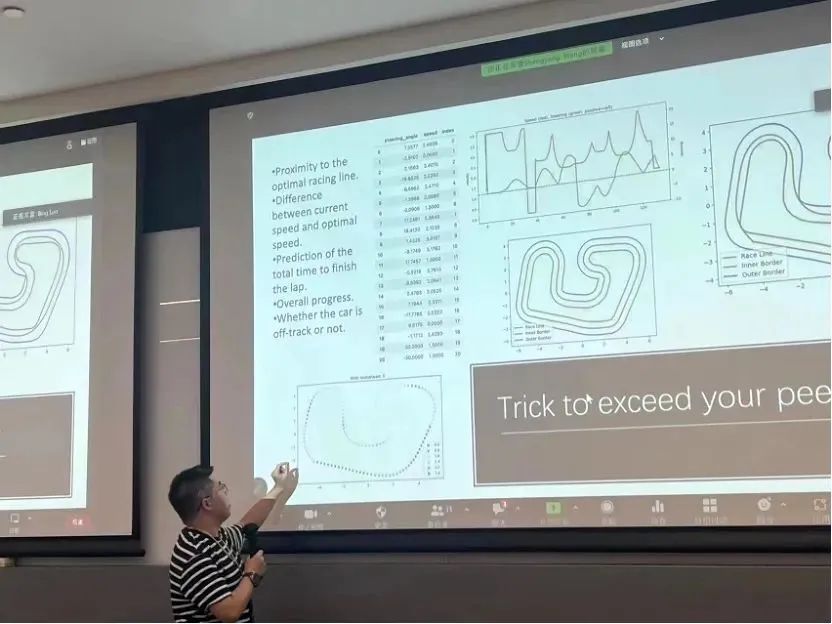
RL is a branch of machine learning that allows an Artificial Intelligence-operated system to learn lessons from its own performance and the environment around it.
DKU undergraduates spent several weeks developing and tuning their RL models in an online 3D simulator before deploying them to the Wi-Fi-enabled cars for racing in autonomous mode in the Academic Building foyer on Oct. 13.
Founded by Amazon Web Services, the Amazon DeepRacer League format takes place all over the world. Two employees of AWS China — Jeremy Davis Pedersen and Rainy Long — presided over the DKU competition as referees. The event was also supported by DKU’s Division of Natural and Applied Sciences.
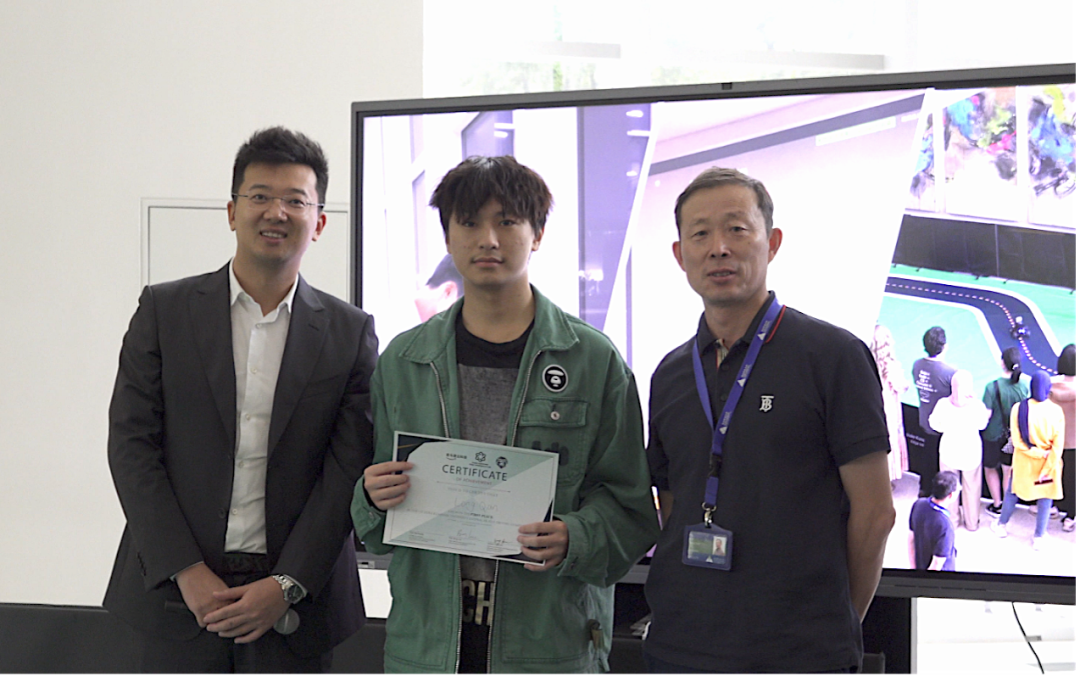
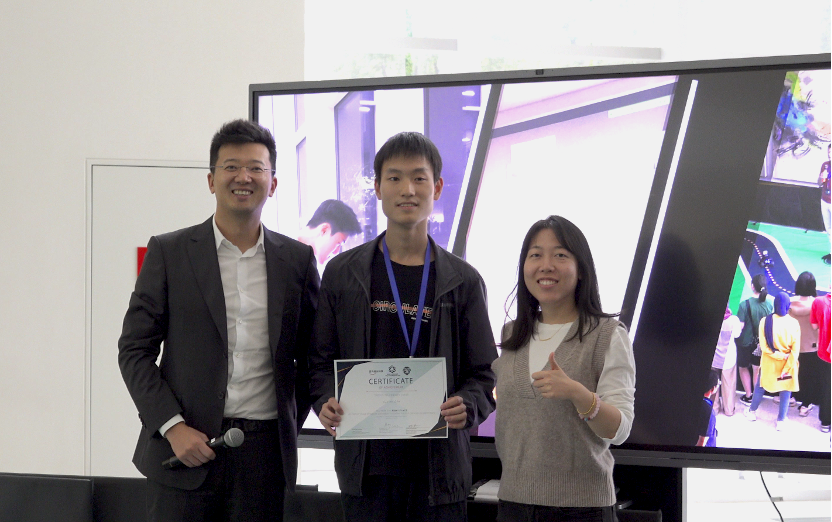
The Edge Intelligence Lab is dedicated to the exploration and advancement of cutting-edge interdisciplinary research in machine learning, wireless communications, networking, game theory and optimization.
Its work has practical applications in edge-based artificial intelligence (Edge AI), privacy computing, the Internet of Things (IoT) and the evolution of 5G/6G wireless systems.
Dr. Kai Huang, associate professor of physics at Duke Kunshan, said a role of educators is to trigger students’ interest in wider questions of how to design, promote and implement any given project.
“This actually goes far beyond the competition itself,” said Huang, who chairs the Division of Natural and Applied Sciences at DKU. “We’d like students to have the mindset to explore this by themselves. That’s actually the goal of education.”
• Students taking part in the competition talked of the thrill of seeing how algorithm changes and other parameter tweaks they made to their RL model were reflected on track. Watch them reflect on their experience on video here.

